#yoruba fela
Explore tagged Tumblr posts
Text
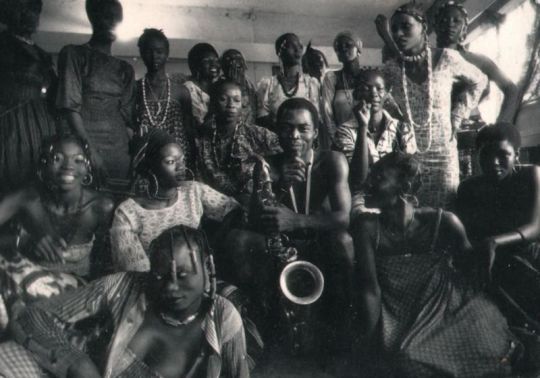
THE UNTOLD STORY OF HOW AND WHY FELA KUTI MARRIED 27 WOMEN ON THE SAME DAY IN 1978 (A must read)
In 1978, the pioneer of Afrobeats, Fela Anikulapo Kuti, married 27 women in one day. This should not be strange to those who know the life and style of the Nigerian music legend nicknamed Abami Eda (strange creature).
Many of Fela’s band members became homeless after the devastating soldier attack on Fela’s commune (Kalakuta Republic) in 1977. In order to keep them together, Fela decided to do the unusual.
He gave a piece of paper to his female band members requesting the names of those that would like to marry him; the entire twenty-seven female band members put down their names.
After getting their consent, Fela Kuti married the 27 women on the 20th of February, 1978, at the Parisona Hotel in Anthony, Lagos, with the blessings of twelve Ifa priests. It was alleged that some parents of the ladies objected the marriage.
Fela married the women to protect and keep them together. The marriage ceremony was attended by Fela’s families, friends and other band members.
During the marriage ceremony, Fela rendered a short speech, pressed naira notes on his new wives’ foreheads and gave them marriage certificates. Fela embraced a rotation system of 12 wives at a time. After the marriage, Fela took his 27 wives to Ghana for honeymoon.
However, in 1986, shortly after his release from prison, Fela Kuti divorced his 27 wives on the claim that marriage brings jealousy. It should be noted that they were not forced to leave his house after the divorce; some lived with him till his death in 1997.
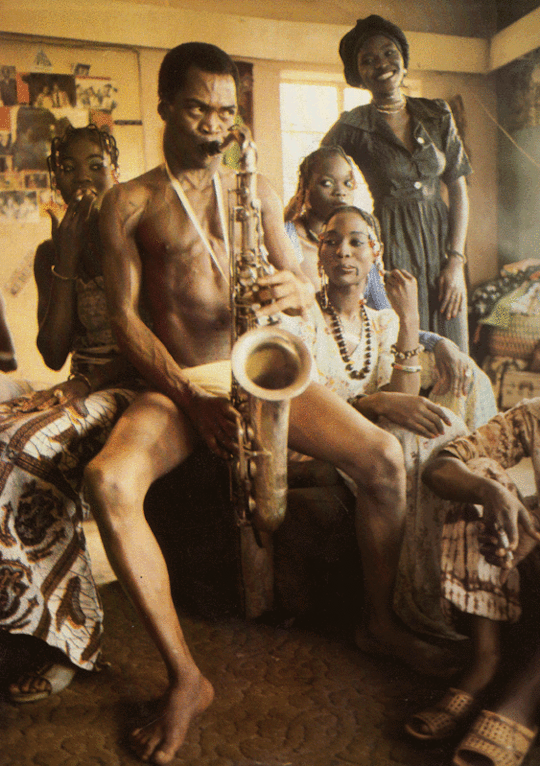
#african#afrakan#kemetic dreams#africans#afrakans#brown skin#brownskin#african culture#afrakan spirituality#yoruba fela#yoruba#fela kuti#ghana#nigerian#wives#multiple wives#abami eda#kalakuta republic#ifa#ifa priests#lagos
159 notes
·
View notes
Text
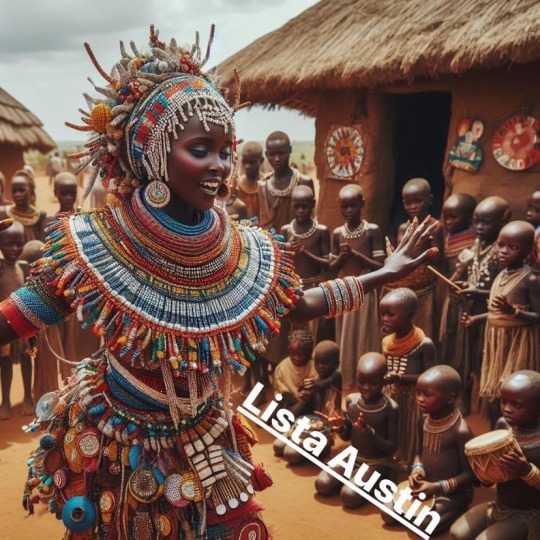
TOP 10 AFRICAN TRIBES/ETHNIC GROUPS THAT ARE GLOBALLY KNOWN.
(In no particular order)
1) Zulu ?? South Africa – The Zulu tribe is popular outside Africa. They’ve been featured in music, documentaries and movies. Shaka the Zulu was a warrior king whose popularity is well spread. Famous Zulus, Lucky Dube, Nasty C, black Coffee etc.
2) Yoruba ?? Nigeria – The Yorubas are globally known for their history, culture, art and literature. Fela, Wole Soyinka, Wizkid, Davido, Tiwa Savage, David Oyelowo, John Boyega, Anthony Joshua etc are a few Yorubas who have taken their culture to the world. The Yoruba culture has been featured in many Hollywood movies.
3) Masai ?? Kenya – The Masai are perhaps one of the most documented tribes in Africa, with alot of documentaries shown about them and books written about their culture.
They are known for their traditional clothing and hunting skills
4) Hausa ?? Nigeria – The hausas are very popular. Often known as the Igbos of the North, The richest black man in the world Aliko Dangote is Hausa along with his brother from the same state Kano Abdulsamad Rabiu (BUA). Their culture has also been well written about and have featured in a few Hollywood movies including the Amazon prime series were a woman was seen eating Tuwo shinkafa.
5) Igbo ?? Nigeria – The Igbos are undeniably known world wide. Chinua Achebe wrote about the Igbo culture alot. They are known for their history, culture and literature.
The popularized the kolanut and palm wine through books, movies and music
Chinwetalu Ejiofor, Zain Asher, Ckay, Flavour, Chimamanda, phyno, P-square are Igbos who have taken their culture to the world. Igbo are known in Nollywood movies.
6) Swahili ?? Tanzania – This tribe have phenomenal spread their language in East Africa and a few central African nations.
In the 70s, their language was part of the African-American black pride movement been pushed forward.
7) Edo/Bini ?? Nigeria – The Binis are perhaps the culture in Africa with the most famous artworks outside Egypt.
Binis are known for their history, culture and art/architecture.
The famous Benin bronze, ivory and brass artworks are known globally. The country Benin republic gets their name from them. Benin art and culture have been featured in Hollywood movies including black panther. Many Nigerian cultures have roots in Benin. The bronze mask of Queen Idia is perhaps the most famous mask in Africa and one of the most famous in the world. Popular Edos are Kamaru Usman, Rema, Odion Jude Ighalo, Victor Osimhen, Dave, Sam Loco Efe etc.
Asante Ghana – This tribe are known for their history and culture. Popular American hip hop artist was named after this tribe Asante. Their Kente is perhaps the most popular African attire outside of Africa and were known to be masters of the gold craft.
9) The Fulani – This nomadic tribes are known for their history and culture. They are predominantly in West Africa and are found in 18 African countries. Most In Nigeria ??
Popular Fulanis or people with Fulani ancestry are Muhammadu and Aisha Buhari, Tafawa Balewa,
10) Berbers/Amazigh – They are predominantly found in North Africa. They are predominantly found in Morocco ?? and Algeria ?? They known for their use of silver silver. Their culture and history well documented and have a unique language and writing system that traces back to ancient Egypt. Books are currently being written about them including a book titled salt by Haitian-American Pascaline Brodeur.
Disclaimer: Every African tribe and culture is beautiful, unique and important. No one culture is more important than the other. This only highlights tribes known outside the continent overall, this doesn’t mean there aren’t other cultures that aren’t known.
PLEASE YOU CAN ADD AND TELL US ABOUT YOUR TRIBE.
49 notes
·
View notes
Text
youtube
Fela Kuti - Water No Get Enemy
“Water No Get Enemy” contains mixed vocal lingo of Yoruba language and pidgin English originating in West Africa. It sees Fela emphasize the power of water literally and metaphorically, suggesting its importance to opposing ideology such as life and death.
7 notes
·
View notes
Text
everytime something like a important film or a musician that has been highly influential to many but isn't white is shown to not be known by the ppl on here i don't even bother telling people to check it out because god knows this racist weirdo userbase will turn do the right thing into a meme and not take it seriously considering this is the site that fandomized breaking bad and said film stars giancarlo esposito and looking at the way white people on here make fun of the state names of america i cant imagine how much they'd make fun of fela kuti singing in pidgin English or yoruba, or how they'd disregard the ideals in his music just like how they do with any non white artist who even manages to get popular on here (*cough* mitski *cough*)
24 notes
·
View notes
Text
FELA, THE UNBEARABLE REIGNING PROPHET– BY EGUNGWU C. BENJAMIN
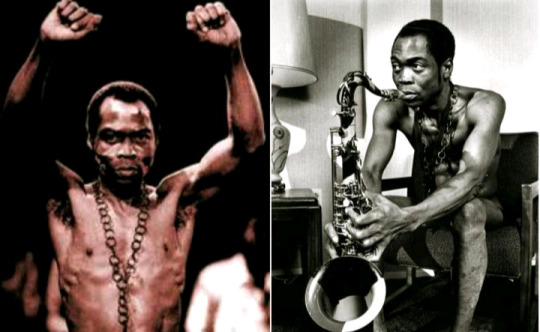
Due to this year's Felabration music festival themed 'Question Jam Answer,' which started on 9th and will be ending on Sunday, 15th October, 2023. I decided to pen down this commemorative piece for the musical icon.
In this piece we will discuss about how the musical festival started and the brain behind it, we will also have brief background of the music icon and information about his career and achievements.
In 1998 Felabration was conceptualized by the late Afrobeat music legend's daughter, Yeni Anikulapo-Kuti just to remember his father's legacy. How he used music as a tool to speak about bad governance , exposing the hidden skeletons in the cupboard of corrupt politicians and religious institution leaders.
The music festival is hosted once every year for seven days and people comes from different states in the country, some from different countries to celebrate the Music icon at Afrika Shrine, Ikeja, Lagos State.
Brief Background of the Music Icon
Olufela Olusegun Oludotun Ransome-Kuti Popularly called 'Fela Anikulapo-Kuti' was born on 15th October, 1938, in Abeokuta, Ogun state, into an upper middle class family.
The Late, Chief. Funmilayo Ransome-Kuti was the mother of Fela. She a very popular feminist activist during the anti-colonial movement and first woman to drive a car in Nigeria back in 1951, while his father, Reverend, Israel Oludotun Ransome-Kuti, was a school principal and first president of the Nigeria Union of Teacher.
Later Fela Kuti removed 'Ransome' from his name and changed it to 'Anikulapo' meaning "He who carries death in his pouch or hands".
This will bring us to one of his hit track, that I love so much titled 'Colo-mentality'. In the song he talked about how the British sold their culture and language to us. we took everything and abandoned ours which makes us original.
In the song he said;
" If you say you be colonial man. You don be slave man before. Them don release you now. But you never release yourself. in another stanza he said;
"Dem go proud of dem name. And put dem slave name for head. No be so?… "
This can be linked to his decision to change his English name ' Ransome' to a Yoruba name 'Anikulapo'.
Fela Kuti is a cousin to the Popular writer and laureate Wole Soyinka (a Nobel Prize for Literature winner).
Brief Music Journey
Base on my research , I found out that the Music Icon was actually sent to London to study medicine just like his brothers; are all medical doctors.
He got to UK enrolled at Trinity College London where he studied classical music and became exposed to different musical sounds by playing piano in jazz and rock bands.
However, in I960s he returned to Nigeria and formed a band ' Koola Lobitos' just as he played when he was in London and Afrobeat sound started from that group through experiment and practices.
That is why he is refered to as the King of Afrobeat which is Jazz, Funk, Ghanaian/Nigerian High-life and psychedelic rock infusion.
Most of the top Afrobeat stars in the world like; Burna-Boy who claimed that his style of music is Afro-fusion. This is inspired by Fela Kuti and he affirmed to it.
During his life time while doing Music in Nigeria, he used it as an instrument to talk c on themes like; freedom, injustice, corruption and any other social vices within the country.
Due to his doggedness and ability to withstand pressure from the Military government in power, they were looking for reasons to find him guilty and jail him.
He declared himself the head of his communal compound, which he named the independent 'Kalakuta Republic'. The place got many attention due to use of drugs, indulgence in sex, polygamy support ( he married 27 women ).
It was said that 1000 soildiers raided his house,' Kalakuta Republic' in Lagos. Thy destroyed his properties and beat up everyone in there.
During the raid Fela, 's mother, Funmilayo Ransome-Kuti, was thrown out from the window. She sustained serious injuries and died at the General Hospital in Lagos on April 13, 1978 and most National Dailies reported the incident with the headline; “Fela’s Mum is Dead" or " Fela's House Burnt ".

This didn't make him stop his musical career or compromise his stand. He dropped more hit tracks like; “Zombie,” “Beasts of No Nation,” “Upside Down" and “Monkey Banana,”.
In his hit track " Zombie" he said; "Zombie no go walk unless you tell am to walk", Which Ironically, he was referring to the military or soldiers who doesn't do things they wish to do but they act base on order or instructions from top ranking officers.
This still remind me my days in Enugu, while still a kid, any time my mother is singing this song, just know you are suppose to do something and you haven't done it. (Smiles African parents still the best).
I referred to him as a prophet in this piece because his music his ever green. Everything he said when he was alive is still happening and even getting worse.
His music stirs ones mind to reflect on life unlike the the artist today that centers their music on sex and flamboyancy. Fela also sang about sex and having good time.
I am not against this kind of music everyone has there style of music and decision to choose what to sing about but once in a while they should use music as a tool to stir-up consciousness.
I dance and sing to the new style of songs, the artists are putting Africa in global map, Everyone is trying to identify themselves as an African but they should also remember that music is an art and should be used to convey message to educate and inform. It shouldn't be for entertainment purpose only.
I do appreciate Singers like; Falz, Tekno, Idris Abdul Kareem, Daddy Showkey, Late Sound Sultan, et-al .
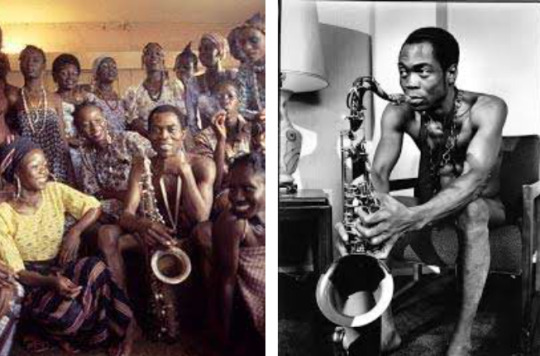
10 notes
·
View notes
Text

Fela Aníkúlápó Kuti (Olufela Olusegun Oludotun Ransome-Kuti; (October 15, 1938 – August 2, 1997) known as Abami Eda was a Nigerian multi-instrumentalist, bandleader, composer, political activist, and Pan-Africanist. He is regarded as the pioneer of Afrobeat, an African music genre that combines traditional Yoruba percussion and vocal styles with American funk and jazz. At the height of his popularity, he was referred to as one of Africa’s most “challenging and charismatic music performers”. AllMusic described him as a “musical and sociopolitical voice” of international significance.
He and his band Africa 70 shot to stardom in Nigeria during the 1970s, during which he was an outspoken critic and target of Nigeria’s military juntas. In 1970, he founded the Kalakuta Republic commune, which declared itself independent from military rule. The commune was destroyed in a 1978 raid.
He attended Abeokuta Grammar School. He was sent to London to study medicine but decided to study music instead at the Trinity College of Music, with the trumpet being his preferred instrument. He formed the band Koola Lobitos and played a fusion of jazz and highlife. He moved back to the newly independent Federation of Nigeria, re-formed Koola Lobitos, and trained as a radio producer for the Nigerian Broadcasting Corporation. He played for some time with Victor Olaiya and his All-Stars.
He traveled to Ghana looking for a new musical direction. He called his style Afrobeat, a combination of highlife, funk, jazz, salsa, calypso, and traditional Yoruba music. He took the band to the US and spent ten months in Los Angeles. He discovered the Black Power movement. This experience heavily influenced his music and political views. He renamed the band Nigeria 70. The Immigration and Naturalization Service was tipped off by a promoter that he and his band were in the US without work permits. The band performed a quick recording session in Los Angeles that would be released as The ‘69 Los Angeles Sessions.
In 2008, an off-Broadway production about Kuti’s life, entitled Fela! inspired by the 1982 biography Fela, Fela! This Bitch of a Life. #africanhistory365 #africanexcellence
2 notes
·
View notes
Text
HONORING THE ANCESTORS~☥
WE POUR LIBATION for our parents (if they have made their transition) and grandparents, who walked this Earth with pride and dignity. It is they who made a way when there seemed to be no way.
WE POUR LIBATION for the Twa, Ethiopians, Egyptians/Kemetians, Ashanti, Dagon, Ibo, Yoruba, Swazi, and, the Zulu, to name a few. We pour libation for those Ancestors who were lost and killed during the voyage of the Middle Passage. We pour libation for those who suffered the cruelty of the horrible institution of slavery, racism, segregation, and oppression in North America, South America, The Caribbean Island, the Middle East, and throughout the World.
WE POUR LIBATION for our great African Revolutionary Leaders like Patrice Lumumba, Amilcar Cabral, and Kwame Nkrumah. We pour libation for our giant visionaries like Harriet Tubman, Frederick Douglass, Nat Turner, W.E.B. DuBois, and Sojourner Truth. We pour libation for our leader Marcus Garvey, who worked for African Liberation.
WE POUR. LIBATION for our strong Sisters like Ella Baker and Fannie Lou Hamer, who taught us that we who believe in FREEDOM cannot REST.
WE POUR LIBATION for our intellectual giants like Drs. Cheikh Anta Diop, Frances Cress Welsing, Ben Jochannan, John Henrik Clarke, Asa G. Hilliard III, Ivan Van Sertima, Jacob H. Carruthers, Amos Wilson, others.
WE POUR LIBATION for our warrior, and brilliant intellect of brother, Malcolm X, who told us never to place any restrictions on what we will do to achieve full LIBERATION. We pour libation for our courageous brother Martin Luther King Jr., who taught us his noble values of selflessness and love.
WE POUR LIBATION to those Sentient Beings who touched the soul of our people through the vibration of their sounds/music. Just to name a few, Illuminating giants like John Coltrane, Bob Marley, Fela Kuti, Gil Scott Heron, Tupac Shakur, and others.
Ancestors, we praise and honor you, and may your spirits be filled with LIGHT and PROGRESS; and may that LIGHT eternally guide us through the FEAR and IGNORANCE of our time, for it is you who we pour LIBATION.
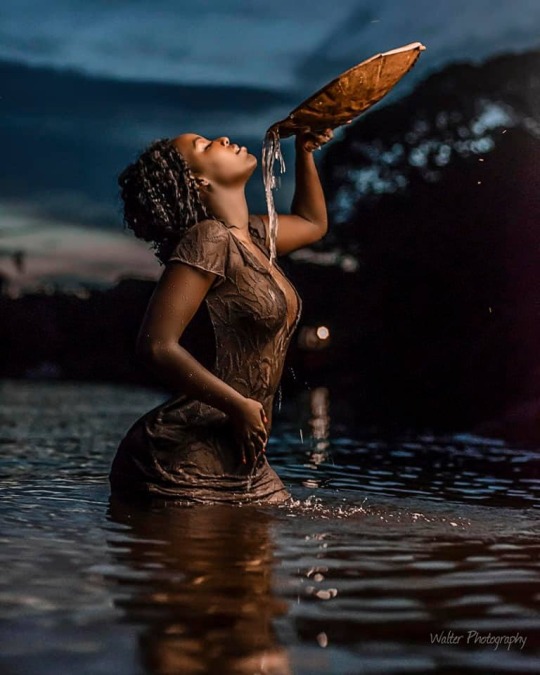
41 notes
·
View notes
Text
Bosq & Kaleta - No Be Today - 12 blasts of Afro-Latin disco from Colombia
After 10 years of globally celebrated but only occasional collaborations, Bosq & Kaleta have their first full length album together. On No Be Today the duo is finally able to stretch out and explore their wide range of influences and musical histories. The album seamlessly melds styles from West Africa & it’s diaspora, Caribbean & South American sounds most prominently, with Disco, Funk, Soul, Hip Hop & House. Live Horn sections mix with a blend of acoustic and electronic drums, Kaleta’s effortlessly funky guitar, Bosq’s layers of keyboards, bass & synthesizers, and heavily layered percussion sections that tug at your waistline. Kaleta’s virtuosic melody writing ties the pieces together with infectious chants and socially conscious lyrics that span Yoruba, French, Goun, Fon & English. Kaleta, having played in the bands of both Juju music great King Sunny Ade & Afrobeat pioneer Fela Kuti, brings the first hand experience and authenticity seldom found in todays West African influenced fusions. Bosq, now on his 6th full length album, brings a 20 year run experimenting with updating vintage sounds in the most tasteful way possible, melding Disco & Funk with styles from around the globe. In that time he’s worked on adding his touch to records by Ray Barretto, Orchestre Poly Rhythmo de Cotonou, Toure Kunda, Poolside, Rawayana & more. The record is an ode to these musical histories, with the title No Be Today coming from a Nigerian saying, which explains that this did not just start and this did not happen by chance, there’s lifetimes of work behind this. It’s also a flag planted for a different way of doing things as technology makes the “perfect” & “clean” sound easier and easier to obtain, with AI art slapped on the front. This record is handmade, full of love and feeling, from the music to the incredible art by Brazilian muralist Amanda Lobos that graces the gatefold vinyl. The statement made by this record is that we should still take our time and delve deeply into projects with our whole soul. Marco Fajardo - Sax (2, 3, 6, 7, 8, 9) Jose Miguel Vega - Trombone (2, 3, 6, 7, 8, 9) Leon Pardo - Trumpet (2, 3, 6, 7, 8, 9) Andres “Bongie” Giraldo - Timbales (4) FLORENTIN KOUDJOU - Trombone (1, 4) TCHANVOEDOU PARFAIT TADAGBÉ - Trumpet (1, 4) ANICET HOUNDONOUGBO - BARI SAX(1, 4) Erlyn Correa - Bass (1, 2, 3, 10) Yuki Kanesaka - Keys, Synths, Organ (2, 4) Wilton Bravo Tascon “El Towii” - Congas (1, 2, 3, 7) Luis Miguel “Papinm” Guerrero - Marimba (3, 11) Hemmy Shout - Trumpet (10) NOAH DREIBLATT - Tenor & Bari Sax (10) Thank you Josephine Ikudehinbu & Salomon Fassinou OROBIYI MOTUNRAYO ABIODUN - Backing Vocals (2, 10) Daniel Biodun - Backing Vocals (10) HORNS RECORDED AT OZANA TRINITE IN COTONOU, BENIN (1, 4) HORNS RECORD AT MAMBO NEGRO RECORDS, BOGOTA (2, 3, 6, 7, 8, 9) All songs mixed & mastered by Caserta
6 notes
·
View notes
Text
INTERNATIONAL WOMEN’S DAY: THE WOMEN IN NIGERIAN MUSIC
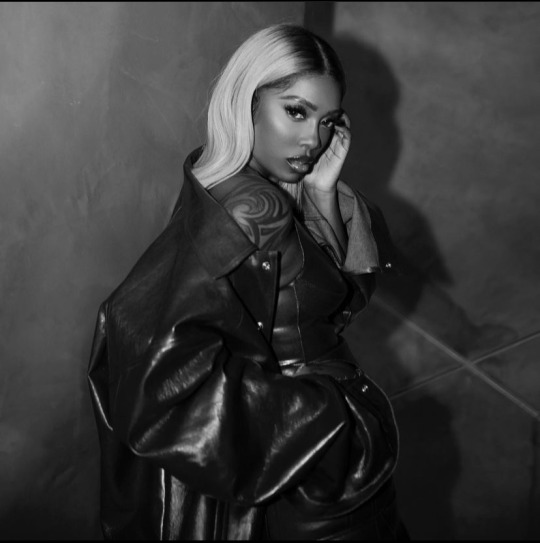
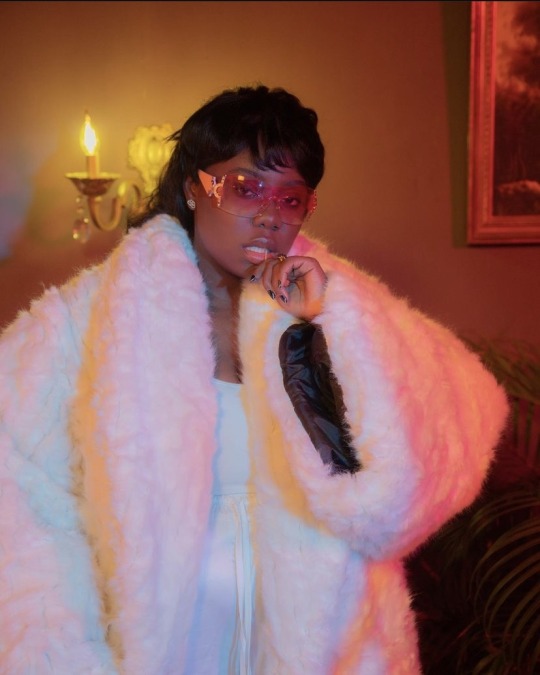
Nigerian music’s history is beautifully storied, and like every great story has had heroes pop up at different times, each handing the baton of Nigerian culture from one generation to the next and laying a small piece of the success it enjoys today. When magnifying glasses are placed on Nigeria's music with the intention of highlighting its most significant contributors, it is very common for our women to get left out. The reasons for this oversight—the relative scarcity of female acts in comparison to male counterparts—is no excuse. If anything, the women who have made their fair share of efforts to shape our music deserve a bigger spotlight, for they had to overcome the more prominent barriers to get there, barriers placed by a patriarchal society and increase the further back you go in our history. Barriers that have not been completely cleared even today.
With today's women breaking and setting records across gender lines, the International Women's Day of 2023 presents a poignant opportunity to document the strides our women make in modern music, while highlighting in retrospect the talented, underreported women who came before.
While Fuji music and its lesser-known affiliate, Apala, were dominating the local scene in the '70s and bringing to their creators like Wasiu Ayinde Marshall, Ayinde Barrister and Ayinde Kollington national fame, another Yoruba-Islamic genre, Waka, was traditionally performed by female artists. It was drawn from Alasatu, a Yoruba genre with strong Islamic and Arabic influences, and Alhaja Batile Alake fashioned Waka out of it, allowing the genre to escape the confines of religion and tribe. Another prominent female singer, Alhaja Salawa Abeni, built on this, bringing Waka to national platforms and beyond.
The Ladiju sisters (or twins) are a pair of female artists whose contributions to Nigerian music remain timeless. Their debut album, Iya Mi Jowo, was released in 1969, and they went on to release 5 more albums that were ahead of their time in content and sound, as they drew from a wide pool of influences that included foreign sounds like Jazz and Rock as well as the indigenous like Waka and Fela Kuti’s Afrobeat.
Across the Niger, the women of South Eastern Nigeria were making similarly impressive strides of their own. Nelly Uchendu is most famous for her Love Nwantiti album of 1976, especially the eponymous lead single. She was not the only Igbo songstress to be renowned for her singing prowess. The “Elegant Stallion”, Onyeka Onwenu excelled even beyond writing and performing music, as she took up roles as an actress, worked as a broadcaster and even delved into politics as part of a storied career, putting to bed question marks placed over a woman’s capability. Christy Essien-Igbokwe chose to put her inspiring messages of woman empowerment and Nigerian advocacy into song, and these female artists performing at the top level helped imprint in the next generation that chauvinistic gender roles were a thing of the past.
Modern Nigerian (Pop) music, or Afrobeats, has featured a larger share of women at the highest echelons at every stage, and it must be acknowledged that they have all but caught up in terms of individual star power.
Weird MC was one of a few artists to first nationalise American hip-hop spirit. Her 1996 album, Simply Weird, and its standout track, "Allen Avenue", helped dress up rap music in the Nigerian clothing it decks today. 2006's "Ijoya" took her popularity a lot further, and it remains a timeless classic to this day. Asa's musical inclination was similarly unconventional, but it lay at the other end of the spectrum, as her R&B/Soul-powered eponymous debut album announced the entry of a new star. With it she strengthened her image abroad, ensuring that she enjoys today an audience beyond the shores of Nigeria. Thankfully her talent came with longevity, and her most recent album, released in 2022, still serenades Nigerians like her first effort did 15 years before.
Subsequent acts would hone in on conventional Nigerian pop, which they coloured with their honeyed vocals. Omawunmi made her debut with 2009's Wonder Woman, fresh off becoming a runner-up on Nigerian Idol where she had launched a prototype of her career. With singles like "In The Music", "Bottom Belle" and "If You Ask Me", her star appeal was never in doubt, and with her most recent album Love Deep High Life only two years old, her diminished popularity should not be taken for hibernation. Waje, another singer blessed with incredible vocals, emerged around the same time, first making a guest appearance on Psquare's "Do Me" in 2008 before songs like "So Inspired" and "For A Minute" served as a proper entry into the scene. Just like Omawunmi, she remains an active member of Nigerian music's ranks, as her latest album, "The Misfit", debuted last year.
At the turn of the decade, Tiwa Savage moved in from the UK, pitching her tent with Don Jazzy's Mavins Music after she had spent the last few years providing back up vocals to icons like George Michael and Mary J. Blige. Her adaptation did not take long, as her superb debut album, Once Upon A Time,—with songs like "Kele Kele Love", "Eminado" and "Without My Heart"—showcased equally her supple songwriting and her silky, yet powerful delivery. She is one of a few acts in Nigerian music, across gender lines, who have ruled the last decade in near-constant influence, and with her ability to tie effortlessly into new and trendy music (see: "Loaded" with Asake and " Who's your guy" remix with Spyro), there is still a lot more to come from the songstress.
Seyi Shay is another act that shares a common history of finding her feet in music in the United Kingdom. She moved to Nigeria at about the same time, and her first steps here—"Irawo" and its Vector-assisted remix; the Loving Your Way EP; and her debut album, Seyi Or Shay—were very well received by the Nigerian audience. Her most recent release, 2021's Big Girl, came with positive acclaim, especially its titular lead single. Yemi Alade's "Johnny" brought with it an impact that every artist desires for their breakout single, and to this day its video continues to accumulate astronomical numbers as more and more people from around the world discover the self-styled Mama Africa. To strengthen her claim to this title, she has released music in a variety of African languages, allowing her to tap into diverse cultures and strengthen her continental profile.
Simi, the woman with the voice that soothes sometimes and strikes other times, also made her debut in the half decade between 2010 and 2014, a time period that supplied female acts in buckets, some of whom still enjoy a continued presence at Nigeria's top flight. She debuted in 2014 with "Tiff", doubling down on this entrance with "Jamb Question" in 2015 as she checked 'playful storytelling' as part of her skillset. With each album since then she has gone on to provide an inspiration to any female acts entering the industry. Sisters Niniola and Teni share little more than a surname, but their varied musical paths have individually brought them to the top flight of Nigerian music's roster. Niniola was one of Nigeria's first adopters of House music, though some articles on the subject will disrespectfully leave her out altogether. Her accolades speak for her though, and she earned a Grammy songwriting certificate via 2017's Maradona, which Beyoncé sampled for her Lion King: The Gift album. Her most recent EP, Lagos to Jozi, builds on her vibrancy and innovation, weaving Nigerian slang into South African beats for a dance-ready project.
Her sister, Teni, is the more exuberant artist off-stage, and her music is a more straightforward affair involving Nigerian Pop rhythms and love-strung writing. Clearly a vigorous romantic, 2018's "Case" outlined the lengths she was willing to go to for love, while 2019's "Power Rangers" imagined herself as a superhero coming to her lover's rescue. She also has an inspiring side, as revealed by "Uyo Meyo", and a balance of these two has driven her to recognition in Nigerian music.
The biggest strides taken for Nigerian women in music, especially on the international stage, would come on the wings of one of its newest entrants. 27 year old Tems has achieved in four short years what would be an impressive resumé for an artist's entire career—a Grammy win, an Oscar nomination and collaborations with some of the biggest artists in the world. All this is made that much more impressive by the fact that she is still yet to release a debut album, and when it arrives later this year it is expected to push her career to unprecedented heights.
Behind Tems are a band of other female acts. Young, talented and eager to break down what is left of Nigerian music's gender tilt and level rhe playing field. Ayra Starr's exploits in Mavin records have produced an EP and an album, and with them she's made a name for females and teenagers in Nigerian music. While this is only a summary of the very many women that have graced Nigerian music for years, it is hoped that with other young acts like Fave, Liya, Guchi and Bloody Civilian making their way up the ladder, next years International Women's Day will feature an even lengthier list than this.
This article was written by Afrobeats City Contributor Ezema Patrick - @ezemapatrick (Twitter)
Afrobeats City doesn’t own the right to the images - image source: Instagram
#afrobeats#afrobeats city#afrobeats london#african music#uk afrobeats#nigeria#nigerian music#iwd#iwd23#music#tiwa savage#international women's month#article#music article
24 notes
·
View notes
Text
Funmilayo Ransome-Kuti

Funmilayo Ransome-Kuti, politica e attivista nigeriana, ha speso la sua intera vita a sostenere i diritti delle donne e delle persone oppresse, giocando un importante ruolo internazionale nel movimento anti coloniale.
Descritta come la madre dei diritti civili delle donne in Nigeria, nel 1947 il West African Pilot, l’aveva definita la Leonessa di Lisabi per aver guidato le donne del popolo Egba durante le proteste che portarono all’abdicazione del re Oba Ademola II.
Nata come Francis Abigail Olufunmilayo Thomas, a Abeokuta, il 25 ottobre 1900, da genitori cristiani di etnia yoruba, ha avuto il primato di essere la prima studentessa della Abeokuta Grammar School, che aveva frequentato dal 1914 e una delle primissime donne a ricevere un’istruzione superiore.
Durante gli studi in Inghilterra, dal 1919, il suo senso di nazionalismo la portò a decidere di abbandonare i suoi nomi inglesi e si fece chiamare soltanto Funmilayo, il suo nome tradizionale abbreviato.
Lavorava come insegnante quando, nel 1925, ha sposato Israel Oludotun Ransome-Kuti, sacerdote e insegnante anglicano da cui ebbe tre figli e una figlia, tutti attivisti e impegnati politicamente, il più noto dei quali è stato Fela Kuti, il più grande artista nigeriano contemporaneo.
Nel 1932 ha contribuito a organizzare il primo gruppo civico femminile chiamato Abeokuta Ladies Club, inizialmente costituito da donne cristiane per lo più istruite in Occidente che, col tempo, divenne sempre più politico e femminista aprendosi a povere, analfabete e sfruttate dalle autorità coloniali. Quando, nel 1946, l’ente è diventato Abeokuta Women’s Union (AWU) Funmilayo Ransome-Kuti ne divenne presidente rendendolo un’organizzazione nazionale poi ribattezzata Nigerian Women’s Union (NWU) nel 1949 e Federation of Nigerian Women’s Societies (FNWS) nel 1953.
Tante sono state le battaglie che ha condotto, come quella contro il controllo dei prezzi, che limitava drasticamente i redditi delle donne che vendevano al mercato, e per garantire un trattamento equo da parte del governo. Ha capeggiato importanti proteste contro una tassa speciale sulle donne imposta dal sovrano locale, Sir Ladapo Ademola II e contro il governo di Ademola, che portarono alla sua temporanea abdicazione, nel 1949.
Gli obiettivi perseguiti includevano maggiori opportunità educative per donne e ragazze, l’applicazione di norme sanitarie e la fornitura di assistenza sanitaria, oltre a diverse attività sociali.
Nel 1947 è stata l’unica donna nella delegazione del Consiglio Nazionale della Nigeria e del Camerun, presente a Londra per negoziare l’indipendenza.
Con l’intento di innalzare il tenore di vita delle donne e provare a eliminare le cause della povertà, ha prestato servizio per diversi mandati nel consiglio locale di Abeokuta, tra il 1949 e il 1960.
Quando, nel 1953, la FNWS si era affiliata alla Federazione Democratica Internazionale delle Donne, venne eletta vicepresidente e, nel suo ruolo, ha tenuto conferenze in diversi paesi sulla condizione delle donne nigeriane.
È stata anche la prima donna in Nigeria a guidare un’automobile e la prima a fondare un’organizzazione politica, il Partito popolare dei comunisti.
All’inizio degli anni ’70 ha cambiato il suo cognome in Anikulapo-Kuti per identificarsi ulteriormente con la cultura yoruba, seguendo l’esempio di suo figlio, Fela Anikulapo-Kuti, popolare musicista e feroce critico dei governi militari della Nigeria degli anni ’60.
Nel 1977, venne picchiata e gettata fuori da una finestra del secondo piano, durante un assalto militare alla proprietà di famiglia che avevano trasformato in una comune chiamata Repubblica di Kalakuta.
È morta per complicazioni dovute alle ferite riportate, il 13 aprile 1978.
La madre dei movimenti femministi africani è stata spodestata con la forza bruta dal suo ruolo, ma la sua voce e il suo esempio restano un faro per i diritti delle donne nigeriane e non solo.
Sulla sua vita e impegno sono stati scritti diversi libri e, recentemente, è uscito un film che porta il suo nome e che esplora il fondamentale ruolo che ha avuto nella storia.
0 notes
Text
Fela Kuti en prisión (Nigeria fue a la guerra contra un músico y perdió)
Por Ted Gioia Autor de múltiples libros sobre música, medios y cultura. Lo llamaban simplemente Fela, aunque su nombre de nacimiento era Olufela Olusegun Oludotun Ransome-Kuti. Y desde su primer aliento, coqueteó con el peligro. Fela se consideraba un abiku. Ese término yoruba se traduce literalmente como “predestinado a la muerte”. En el folclore tradicional, estos son niños que se…
#Apartheid#África#Estados Unidos#Fela Kuti#Jazz#Kalakuta#Malcom X#Marihuana#Música#Nígeria#Panafricanismo#Panteras Negras#Peter Gabriel#Reino Unido#Sankara#Stevie Wonder#Suajili#Sudáfrica#Zombie
0 notes
Text
10 Fakta Menarik Tentang Nigeria
Populasi Terbesar di Afrika Nigeria adalah negara dengan populasi terbesar di Afrika, dengan lebih dari 200 juta penduduk. Hal ini menjadikannya salah satu negara terpadat di dunia.
Ekonomi Terbesar di Afrika Nigeria memiliki ekonomi terbesar di Afrika berdasarkan Produk Domestik Bruto (PDB). Negara ini kaya akan sumber daya alam, terutama minyak bumi, yang menjadi sumber utama pendapatan negara.
Keanekaragaman Budaya Nigeria dikenal dengan keanekaragaman budayanya yang luar biasa, memiliki lebih dari 250 kelompok etnis. Tiga kelompok etnis terbesar adalah Hausa, Yoruba, dan Igbo.
Bahasa Resmi Bahasa resmi Nigeria adalah Bahasa Inggris, yang digunakan untuk administrasi pemerintahan, pendidikan, dan bisnis. Namun, ada lebih dari 500 bahasa lokal yang digunakan sehari-hari.
Lagos - Kota Terbesar di Afrika Barat Lagos, meskipun bukan ibu kota, adalah kota terbesar di Nigeria dan salah satu kota terbesar di Afrika Barat. Kota ini adalah pusat ekonomi dan komersial negara.
Pusat Industri Film Nollywood Nigeria memiliki industri film yang sangat produktif, dikenal sebagai Nollywood. Nollywood adalah salah satu produsen film terbesar di dunia, menghasilkan ribuan film setiap tahunnya.
Warisan Sejarah Benin Kerajaan Benin di Nigeria terkenal dengan artefak-artefak perunggu yang luar biasa, yang berasal dari abad ke-13. Artefak-artefak ini terkenal di seluruh dunia dan banyak ditemukan di museum-museum besar.
Sepak Bola yang Populer Sepak bola adalah olahraga yang paling populer di Nigeria. Tim nasional sepak bola Nigeria, dikenal sebagai Super Eagles, telah memenangkan Piala Afrika beberapa kali dan berpartisipasi dalam banyak Piala Dunia.
Keanekaragaman Alam Nigeria memiliki keanekaragaman alam yang luar biasa, mulai dari hutan hujan tropis di selatan hingga savana di utara. Taman Nasional Yankari dan Taman Nasional Cross River adalah beberapa tempat wisata alam yang terkenal.
Musik Afrobeat Nigeria adalah tempat lahirnya musik Afrobeat, genre musik yang dipopulerkan oleh Fela Kuti. Afrobeat adalah campuran antara musik tradisional Afrika, jazz, highlife, funk, dan chanted vocals.
Sumber: faktarandom.com
0 notes
Text
youtube
Eparapo - Black Lives Matter (feat. Dele Sosimi)
Album: From London To Lagos (Remixes) [EP]
Wah Wah 45s are proud to present a new set of remixes, as well as originals released on vinyl for the very first time, from Afrobeat supergroupEparapo. Having come togetherduring the unprecedented events of the pandemic and the Black Lives Matter movement, and despite being a project born from the privations of lockdown, their music is ultimately an expression of hope, resilience & resurgence.
The word "eparapo" means "join forces" in Yoruba, the language of Afrobeat. It's also the title of a track by the late, greatTony Allen- drummer for Afrobeat legendFela Kutiand lifelong friend and mentor of our very own "Afrobeat Ambassador",Dele Sosimi. Not only did Tony help to invent Afrobeat, he always looked for ways to push the boundaries, never content with recreating what had gone before but constantly expanding and developing the genre. This project hopes to pay homage to his legacy, and that of Fela Kuti himself. Its aim is to innovate, fuse and diversify while still retaining the essence of the music.
The force behind Eparapo is bassist, composer & producerSuman Joshi.He has been a member of Dele Sosimi's Afrobeat Orchestra for nearly a decade and has performed on stage with the likes of Tony Allen, Seun Kuti, Ginger Baker & Laura Mvula. He is also bassist with UK jazz ensemble Collocutor and fusion project Cubafrobeat.
Featured vocalist on both original tracks, and remixes, is the aforementioned Dele Sosimi - keyboard player and musical director for Fela's Egypt 80 as well as Wah Wah 45s recording artist on both his solo material and the recent collaboration with house music producer, Medlar.
The rest of the group comprises of bandleader ofAfrik Bawantuand percussionist for Ibibio Sound Machine and Keleketla,Afla Sackey; highly rated UK jazz vocalistSahra Gure; saxophonist, composer, producer and bandleader of the renowned forward thinking jazz outfit Collocutor,Tamar Obsorn; keyboard player, producer and front man for Lokkhi Terra and Cubafrobeat,Kishon Khan; one of the UK's finest and most in demand trumpeters,Graeme Flowers, who has played with Quincy Jones, Gregory Porter and many more; trombonist for Bellowhead and mainstay of Dele's Afrobeat Orchestra,Justin Thurgur; and finally drummer for Steamdown and Sons of Kemet, as well as the man behind the Nache project,Eddie Wakili Hick.
From London To Lagoswas inspired by a talk given by writerRoberto Savianoat the Hay Book Festival in 2016, just before the Brexit referendum. In it he described the UK as the "most corrupt country in the world". This was a reminder of how the leaders of so-called developed countries, conveniently suffering from colonial amnesia, still point disparagingly at the rest of the world and talk of "endemic corruption" and "Banana Republics". All the while the ill-gotten gains of organised crime syndicates, corrupt multinationals and military juntas across the globe are funnelled through financial centres such as London. Same trouble, different methods, greater scale. Of course the best way to divert the population from all this is to find distractions such as populist leaders who declare their countries "world beating" and scapegoats such as refugees, immigrants and other members of the underclasses. It has always been thus but it doesn't always have to be so.
This track was once more recorded remotely during lockdown and features an all star lineup of world class musicians from the UK Afrobeat and jazz scenes. Members of the Dele Sosimi Afrobeat Orchestra, Keleketla, Sons of Kemet and beyond have come together to create this powerhouse of a band. They encapsulate the meaning of "eparapo" and "join forces'' to fight a common enemy in the shape of corrupt and divisive ideologies.
Black Lives Matterwas obviously inspired by the movement of the same name and was the first track to be released by Eparapo in late 2020. Dele's voice tell the story slave ships leaving West Africa in the fifteenth century, the brutal conditions that were experienced on board, and the continued suffering of the African diaspora today. As always, half of the artist's income for this song will be donated to the NAACP - a civil rights organisation in the United States, created for the advancement of black people by means of following judicial policies.
0 notes
Text
Soundway Records share ‘Were Oju Le (The Eyes Are Getting Red)’ by Trinidadian artist Oluko Imo. The song features Fela and Femi Kuti and is the b-side of the 12″ single ‘Oduduwa’, the first release in a series of reissues shining light on the figure of Oluko Imo. His music sits at the fault line of the Trinidad-Yoruba connection, blending calypso heritage with the Afrobeat and jazz of Nigeria. The release schedule includes 12″ single ‘Oduduwa’, Black Truth Rhythm Band’s LP ‘Ifetayo’, and Oluko Imo’s albums ‘Glory Of OM’ and ‘Anoda Sistem’.
1 note
·
View note
Text
Éveillez vos sens : explorez les richesses des musiques du monde

Il est facile de rester dans sa zone de confort musicale, bercé par les mêmes rythmes et mélodies. Pourtant, l'univers de la musique est un océan aux trésors variés, prêt à être découvert. Les musiques du monde vous invitent à un voyage sonore, une aventure qui élargira vos horizons musicaux et culturels. Partez à la découverte des rythmes africains L'Afrique est un continent aux multiples sonorités. Les rythmes entraînants de l'Afrobeat nigérian, les mélodies hypnotiques du Gnawa marocain ou l'énergie vibrante du Mbalax sénégalais sont autant d'expressions de la richesse culturelle africaine. Immergez-vous dans ces sonorités pour une expérience musicale authentique et vibrante. Afrobeat : l’héritage de Fela Kuti Né dans les années 60 au Nigéria, l’Afrobeat est une fusion de musique traditionnelle yoruba, de jazz et de funk. Fela Kuti, pionnier de ce genre, a su créer une musique engagée qui continue de résonner dans le monde entier. Voyagez en Amérique Latine avec la salsa et le tango Si vous aimez les musiques qui font bouger, la Salsa et le Tango sont faites pour vous. La salsa, avec ses racines à Cuba et à Porto Rico, est une danse sociale par excellence. Le tango, né à Buenos Aires, est un dialogue musical complexe et passionné entre deux danseurs. Ces genres musicaux incarnent l'esprit festif et passionné de la culture latino-américaine. Tango : une danse de passion Le tango est plus qu'une danse, c'est une conversation entre deux personnes, exprimée à travers la musique et le mouvement. Les origines du tango sont ancrées dans l'histoire argentine, et sa musique est riche d'émotions et de passion. Lisez également : Les musées les plus visités dans le monde : une escapade culturelle inoubliable Plongez dans la spiritualité de la musique indienne La musique classique indienne est un véritable voyage spirituel. Le Raga, une forme de musique indienne, est conçu pour évoquer des émotions spécifiques et est souvent joué à des moments précis de la journée. Cette musique, profondément ancrée dans la culture indienne, vous offrira une expérience sensorielle unique. Raga : une mélodie du cœur Le Raga est un genre musical qui exprime toute une palette d'émotions, du plus profond chagrin à la plus grande joie. C'est une musique qui parle au cœur, et qui vous invite à un voyage intérieur. Osez l'inconnu avec la musique traditionnelle asiatique La musique traditionnelle asiatique, qu'elle soit chinoise, japonaise ou coréenne, offre une palette de sons et de rythmes uniques. Les instruments traditionnels comme le guzheng chinois, le shamisen japonais ou le gayageum coréen créent une ambiance zen et apaisante, idéale pour un moment de détente. Read the full article
0 notes
Text

Fela Sowande (May 29, 1905 - March 13, 1987) musician, composer, professor, and conductor was born in Abeokuta, Nigeria. He was the son of Emmanuel Sowande, who was an Anglican priest and influential in the development of Nigerian sacred music. He was a musician and composer of music in the classical European style.
He studied at CMS Grammar School and King’s College and received his Fellowship Diploma from the Royal College of Organists. He worked as a band leader and was influenced by jazz and popular music as well as the church music of his father and mentor. He received his BSM from the University of London and became a Fellow of Trinity College of Music.
He worked as a church organist, a theatre organist, a dance pianist, a bandleader, and a choirmaster. His organ music compositions were based on Nigerian melodies which had great resonance with the growing population of African and Caribbean immigrants to Great Britain.
He was a composer in a variety of genres: organ, choral, solo, and orchestral works as well as an author of four books. He composed music for the British Ministry of Information during WWII. He moved back to Nigeria to work for the Nigerian Broadcasting Corporation.
His academic record was wide-ranging as his research interests were in African music. He received a US State Department Leaders and Specialists grant which allowed him to present organ recitals in New York, Boston, and Chicago, and to lecture on his research. The Rockefeller Foundation sponsored his work in New York. He was a visiting scholar at Northwestern University’s anthropology department and he studied composition at Princeton University. He received a grant from the Ford Foundation to research Yoruba religion. He was awarded a Nigerian government grant to study and write about Nigerian music. He was a research fellow at the University of Ibadan.
He took an academic position at Howard University, he took a position at the University of Pittsburgh. His last academic position was at Kent State University, where he remained with his wife Eleanor McKinney, until his retirement. #africanhistory365 #africanexcellence
3 notes
·
View notes